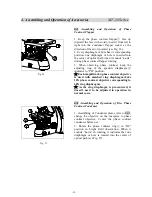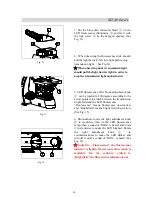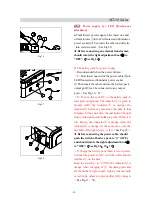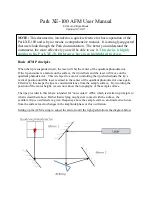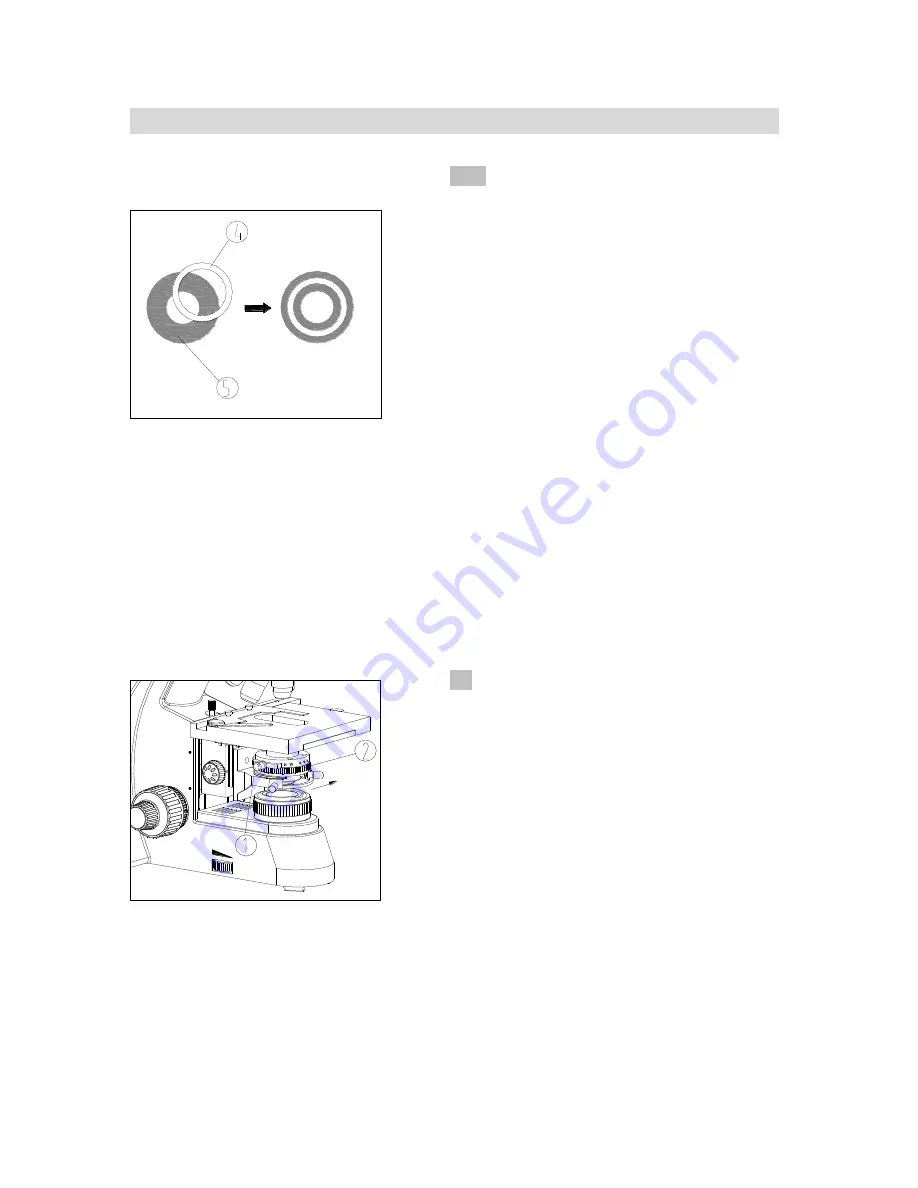
-16-
MT-50
Series
4-2-1
Centering Halo
In phase contrast microscopy observation, slide
the aperture diaphragm lever
①
to the most left as
the direction of the arrow pointed (always keep
aperture diaphragm at maximum). (see Fig. 27)
1. Put speciman on the stage and focus.
2. Take out one observation eyepiece and insert
one CT (certering telescope) into the tube
3. Confirm the corressponding phase ring (in
phase contrast objective) and halo (in phase
contrast disc
②
) are moved into optical path.
4. Adjust certering telescope to get a clear image
of phase ring and halo in field of view (see Fig.
28).
5. Center by phase contrast adjusing lever
③
until
halo
④
center overlap the phase ring center (see
Fig. 27, Fig. 28).
6. Adjust phase ring and halo of other
magnification phase contrast objective according
to above steps.
★
It can not get the phase contrast microscopy
observation effect if the halo is not centered
correctly.
4-3
Assembling and Operation of Dark Field
Flapper
1. Keep phase contrast flapper face up (upward
the face with word), insert it from left to right into
condenser flapper socket as the direction of the
arrow pointed (see Fig. 29).
2. Every diaphragm or hole has corresponding
position, when it sounds “ka-da” in dark field
flapper rotating, it indicates that one diaphragm or
hole is inserted into the center of optical path.
3. In dark field observation, adjust aperture
diaphragm adjusting ring to maximum position.
★
Dark field ring diaphragm is on the left side
of flapper.
Fig. 28
Fig. 29














